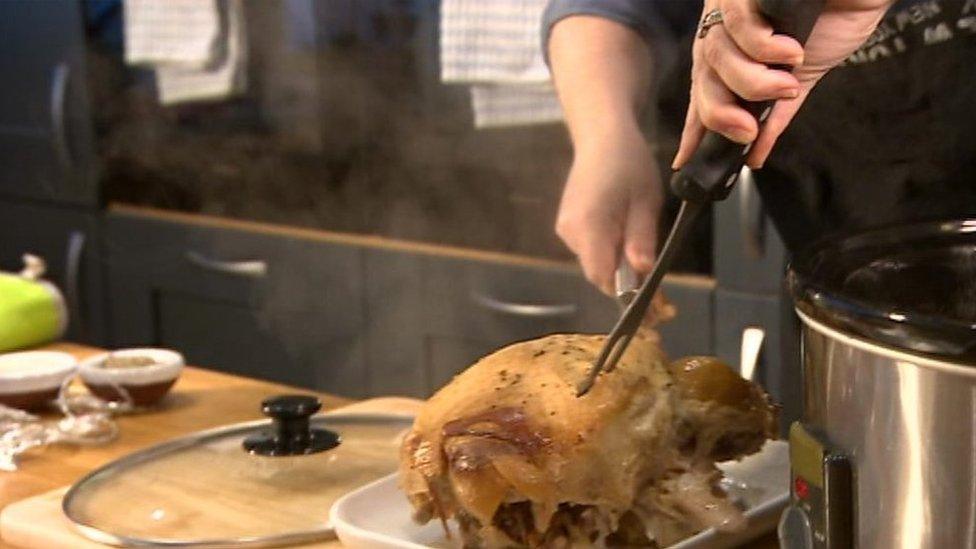A family's tips for taking the plastic out of Christmas
- Published
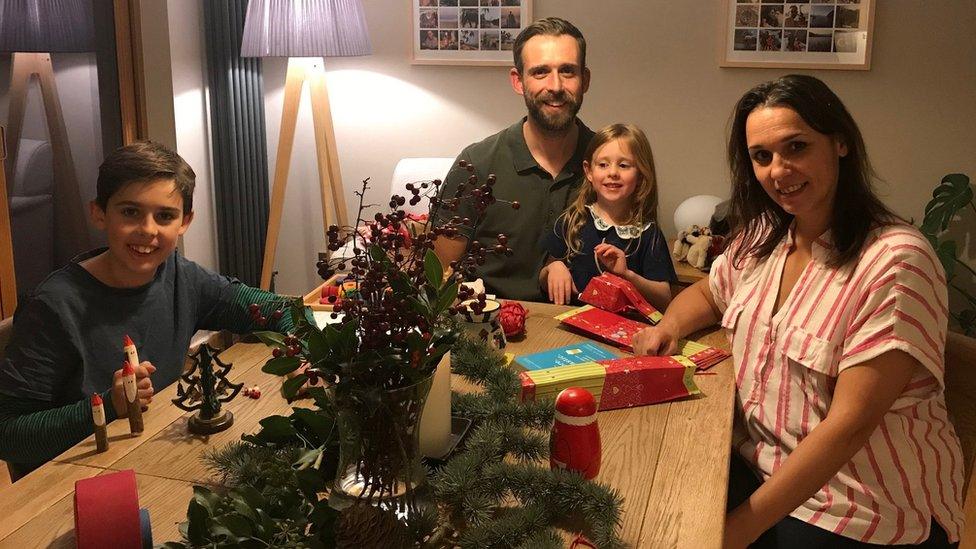
The Hoye family have been trying to cut down on single-use plastic for about two years
The countdown to Christmas has begun but as consumers grow more conscious about plastic pollution, we ask if it's possible to have just as much festive fun without the bin liners full of waste.
The Hoye family, Lydia 42, Dan, 40, Emanuel, 10, and Inés, four, have been trying to cut out as much plastic as possible from their daily lives for the past two years after seeing shocking scenes in the Blue Planet documentary series.
Dan says this has made the family, from Bingham in Nottinghamshire, look at Christmas differently. "It is a really lovely celebration but if all we do is go to the supermarket and clear the shelves and get it over with, then you lose a lot of that ritual."
Here are the Hoye family's tips on how to ditch the plastic this yuletide while keeping the festive spirit alive.
Advent calendar
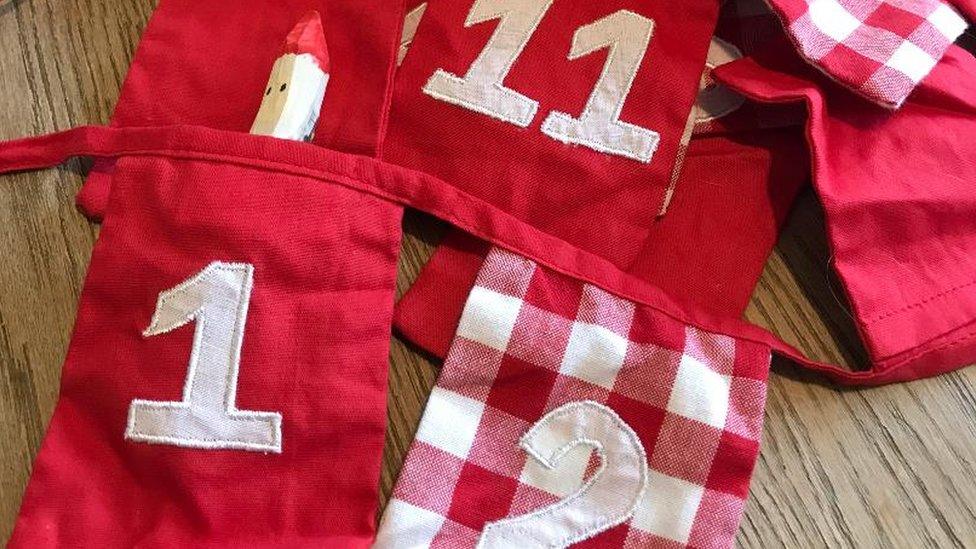
Selecting treats to put in homemade Advent calendars makes them more special, Lydia says
Instead of the disposable chocolate Advent calendars that have become commonplace in many households, the Hoyes use a fabric calendar with numbered pockets that can be filled with chocolates or small gifts.
Lydia says: "Sometimes we put little notes in as well, which makes it more special. If you think about children having a chocolate Advent calendar they just want the chocolate really, so it's no different."
Dan adds: "People might say it's time-consuming but we think it's important not to go for the most obvious stuff, which is invariably plastic."
Decorations
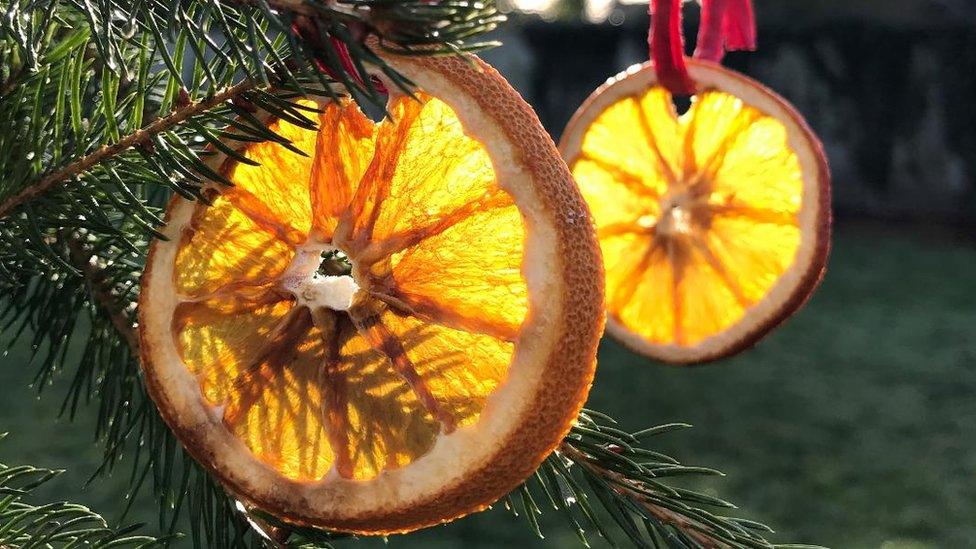
Christmas trees can be decorated with dried fruits
The family like to make decorations out of plants and foliage, which they bring in from the garden just before Christmas.
They keep it simple with a wreath for the door and a table centrepiece made out of ferns and other evergreens. There is a real Christmas tree in the lounge each year, which is decorated with ornaments including dried chillies, oranges and cinnamon sticks.
"Last year Dan brought in a silver birch branch and dried some orange pieces and hung them all on there and we had it in the house until February as it looked so beautiful," Lydia says.
"It's about bringing in nature from outside, which is what people used to do and it's why we have Christmas trees in the first place and we've sort of lost touch with that, really," adds Dan. "Not everyone's got a garden, I respect that, but sometimes you can buy stuff from a greengrocers or there's lots of ways you can get hold of it."
Dan, who works as an outdoor educator, says he also likes to make wooden Christmas decorations by whittling branches and painting them to look like little Santas.
Toys and gifts
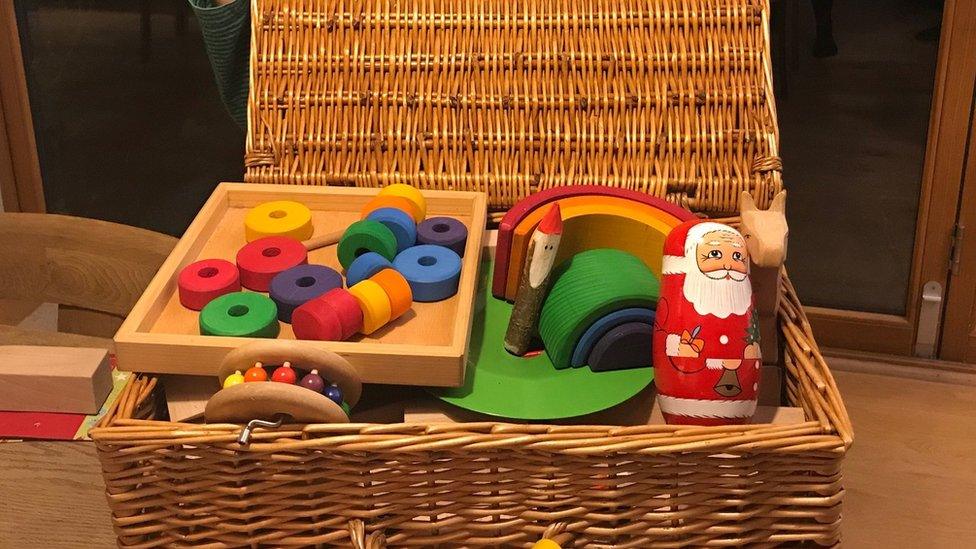
The family get wooden toys as gifts for younger children
Dan says they have started to give experiences for their elder child Emanuel, such a junior driving day, rather than material things.
"You could have a plastic gift that you don't really use or you could have a memory and keep that forever," Emanuel says.
For the couple's daughter, Inés, they steer clear of the jungle of plastic toys aimed at children each Christmas and go for "well-made wooden toys that last".
Dan's top tip for plastic-free gifts for babies this Christmas is a homemade treasure basket.
"Get a wicker basket and fill it with items that help a baby's sensory development like pegs, fabric, cotton reels, things that would be safe for them to put in their mouth but have different textures. It's a lovely idea because it doesn't cost a lot of money but children get a lot of use out of it."
For adults, the family like to give gifts like books or things that help people reduce their single-use plastic, such as reusable water bottles or coffee cups.

Are you changing your habits this Christmas for environmental reasons?
Use the form below to send us your thoughts and we could be in touch.
If you are reading this page on the BBC News app, you will need to visit the mobile version of the BBC website to submit your question on this topic.

Gift-wrap
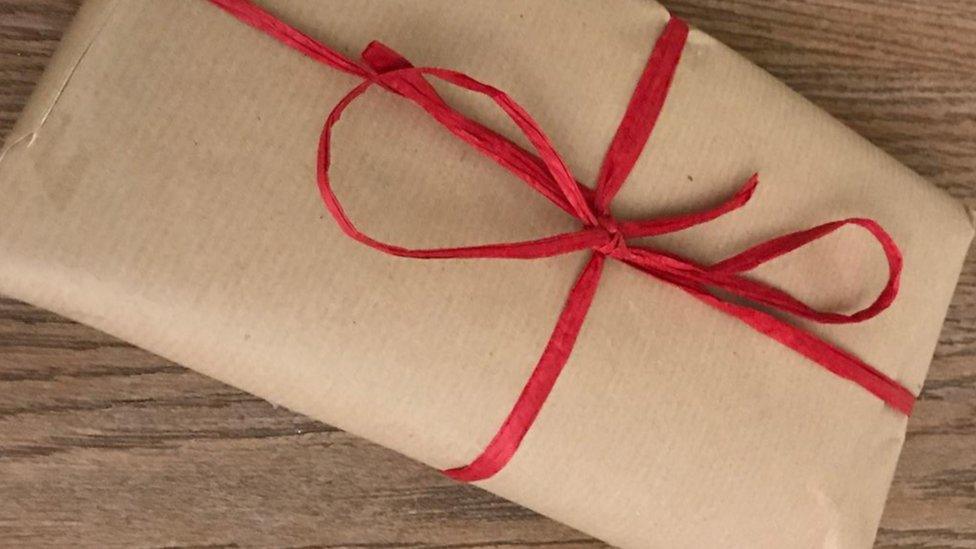
Dan says the family like to reuse ribbon and raffia when wrapping presents
"Wrapping-paper has driven me mad for years," says Dan, who admits to having spent hours separating discarded gift-wrap and peeling bits of sticky tape off it in previous years. "Invariably it's got glitter on it or foil or plastic and you end up with a huge black bin liner full of wrapping-paper."
Now he says they use brown paper with paper-based tape that can be recycled. "We've got ribbons that we use around the parcels, year after year."
He advises people buying paper to test if it's recyclable by scrunching it up - "the foil stuff, which can't be recycled, tends to bounce back". Dan also says reusing material bags to wrap presents can help cut down on waste.
Crackers
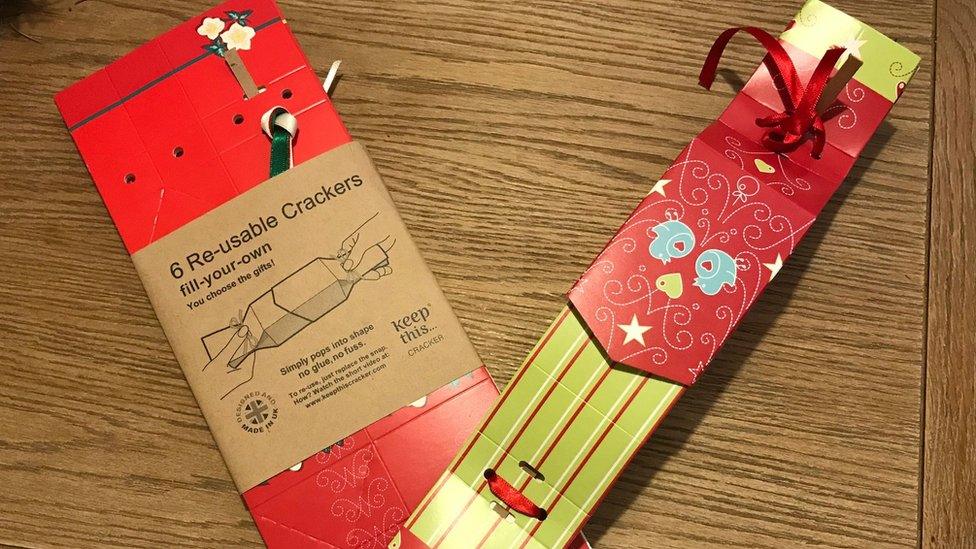
This year the Hoyes are trying reusable crackers which they hope to keep for years to come
Pulling a cracker before Christmas dinner is a long-held tradition but is yet another cause of festive waste.
In the past the family have gone for "eco-crackers", where the gift inside is something wooden, like a dice or a golf tee. But this year they will have reusable crackers, which can be filled with your own choice of gift and reattached after being pulled apart.
"We'll put in marbles, homemade chocolates, wooden toys," Dan says. "It's actually the action of pulling the cracker that's the fun bit - what's inside is sort of secondary, isn't it?"
Christmas dinner
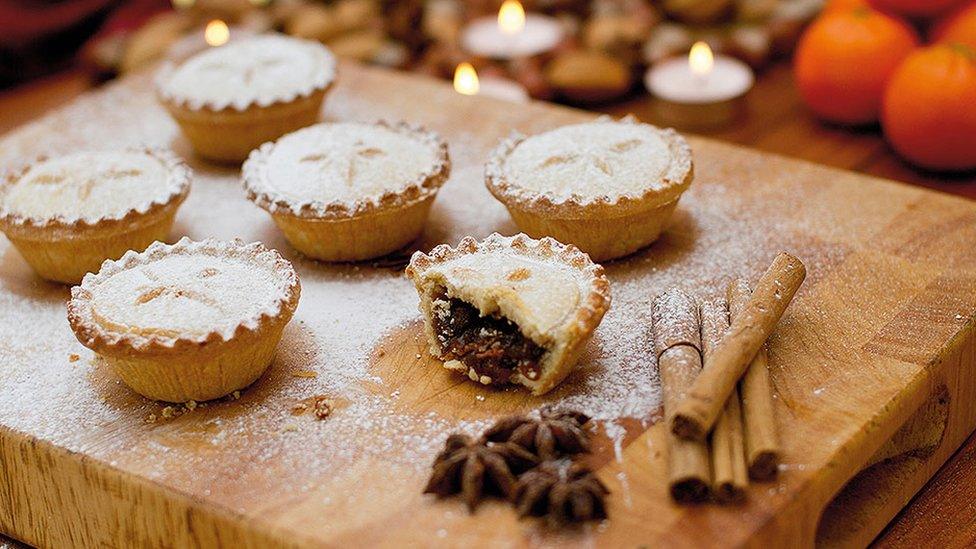
Dan says he hates that shop-bought mince pies come with a box, plastic tray and foil
"One of the first things and perhaps the easiest is to think about where you get your food from," Dan says. "A lot of the supermarkets are starting to offer more choice but I still think going to a greengrocers or a market is the best way of getting all of your fruit and vegetables plastic-free."
He says they carry around reusable bags and buy loose vegetables for Christmas dinner. They also go to their local plastic-free shop and take reusable paper bags to get ingredients like nuts or rice, which they transfer into jars at home.
The family will be having traditional vegetables with a dish like nut roast or mushroom Wellington on Christmas Day. "We don't eat meat, so there's no turkey but I don't see it being part and parcel [of trying to cut down on plastic] - you can have any dietary choice," Dan says.
He says making things yourself, such as the Christmas pudding, is a great way to cut out plastic packaging. "One of my bug-bears is mince pies - they always come in that awful plastic tray and little foil cups, so again, if you make your own stuff that helps get round the problem."
Plastic action isn't just for Christmas
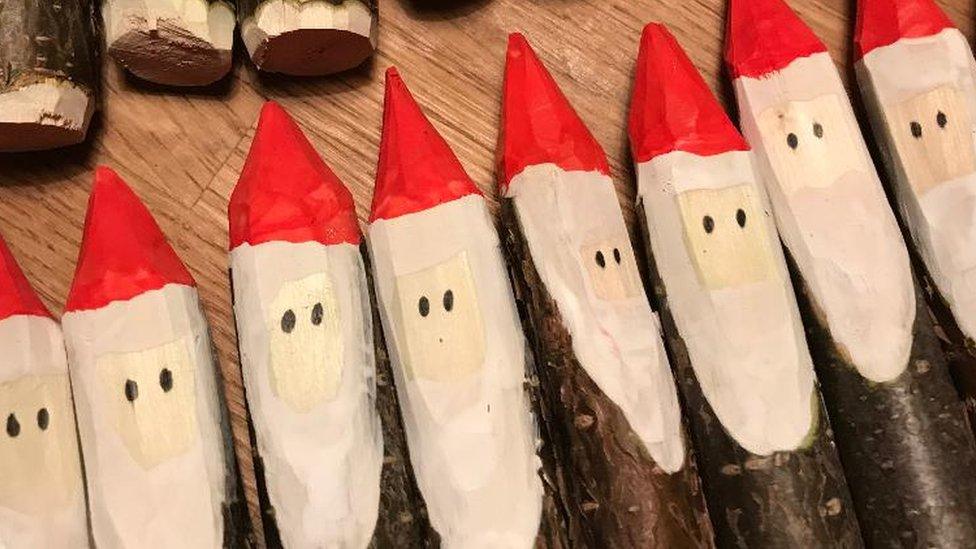
Dan likes to make wooden toys and decorations
Lydia believes attitudes towards waste are changing in the UK.
"I saw a real change last Christmas and it's becoming far more in people's awareness," she says. "It's a difficult time to think about this pre-Christmas because everyone is trying to rush around and do everything but you just need a bit of forethought. Our family have been a lot more supportive about things and have taken things on board."
Trying to be plastic-free is obviously not just for Christmas for the Hoye family. In the Hoyes' hometown Dan has set up Plastic-Free Bingham, which is part of the Surfers Against Sewage national charity. It aims to help businesses and community groups get rid of single-use plastic items such as coffee cups, drinks bottles, straws and cutlery.
One of the best Christmas gifts for Dan would be if the government would take more action against manufacturers of plastic.
"The whole premise is that the consumer is at fault and the consumer needs to do something," he says. "What we're trying to do is push back on to supermarkets and manufacturers that this isn't right, you can't keep wrapping this stuff in plastic and give us no choice but to buy it."
If you are reading this page on the BBC News app, you will need to visit the mobile version of the BBC website to submit your question on this topic.

Follow BBC East Midlands on Facebook, external, Twitter, external, or Instagram, external. Send your story ideas to eastmidsnews@bbc.co.uk, external.
- Published13 November 2019
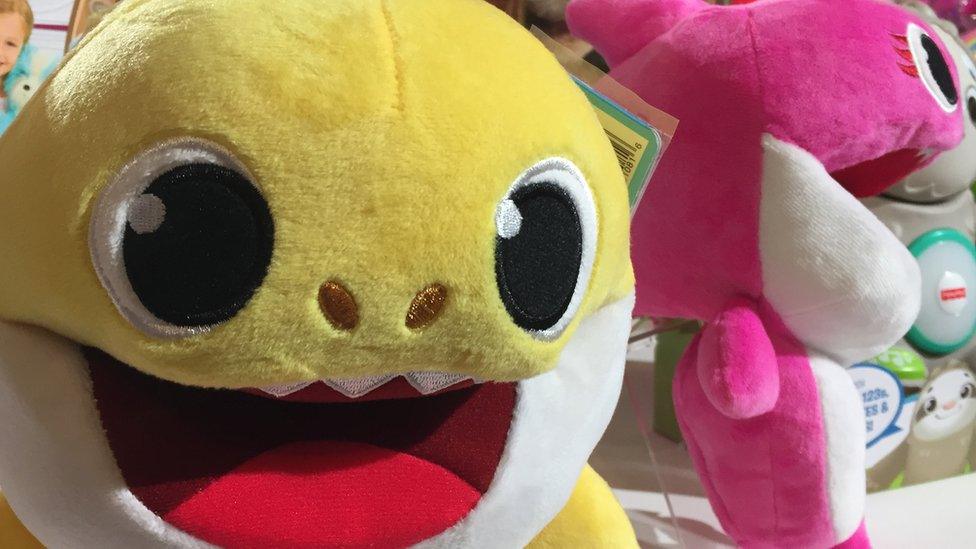
- Published8 November 2019
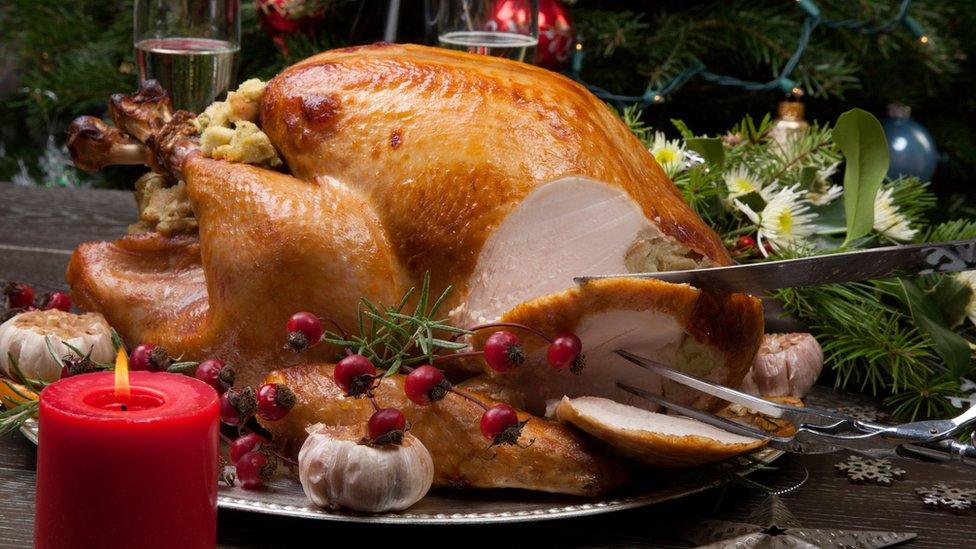
- Published4 November 2019
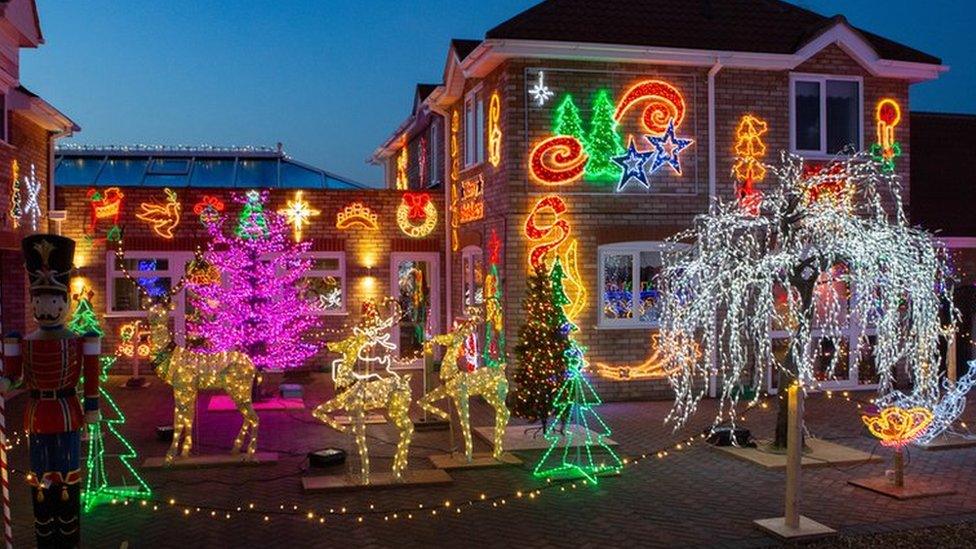
- Published28 October 2019
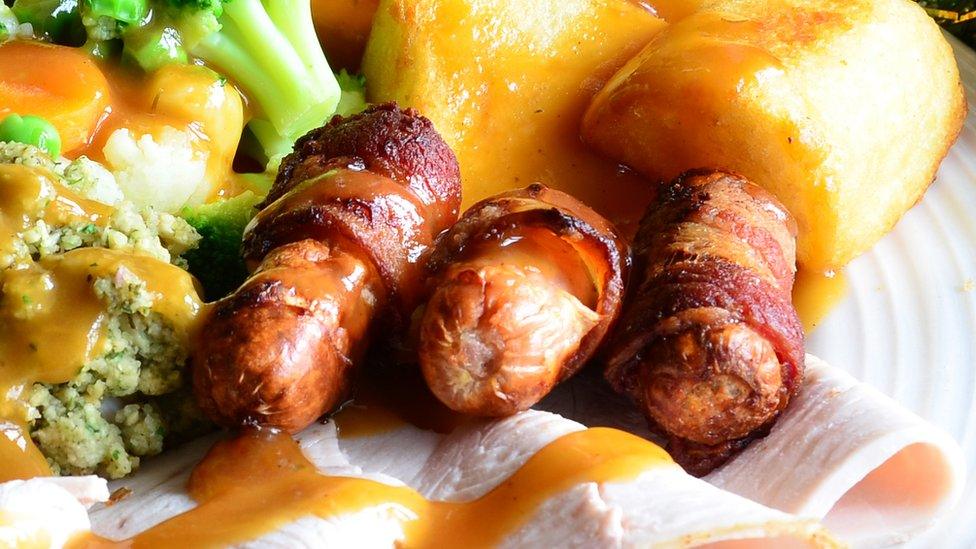
- Published18 December 2016
